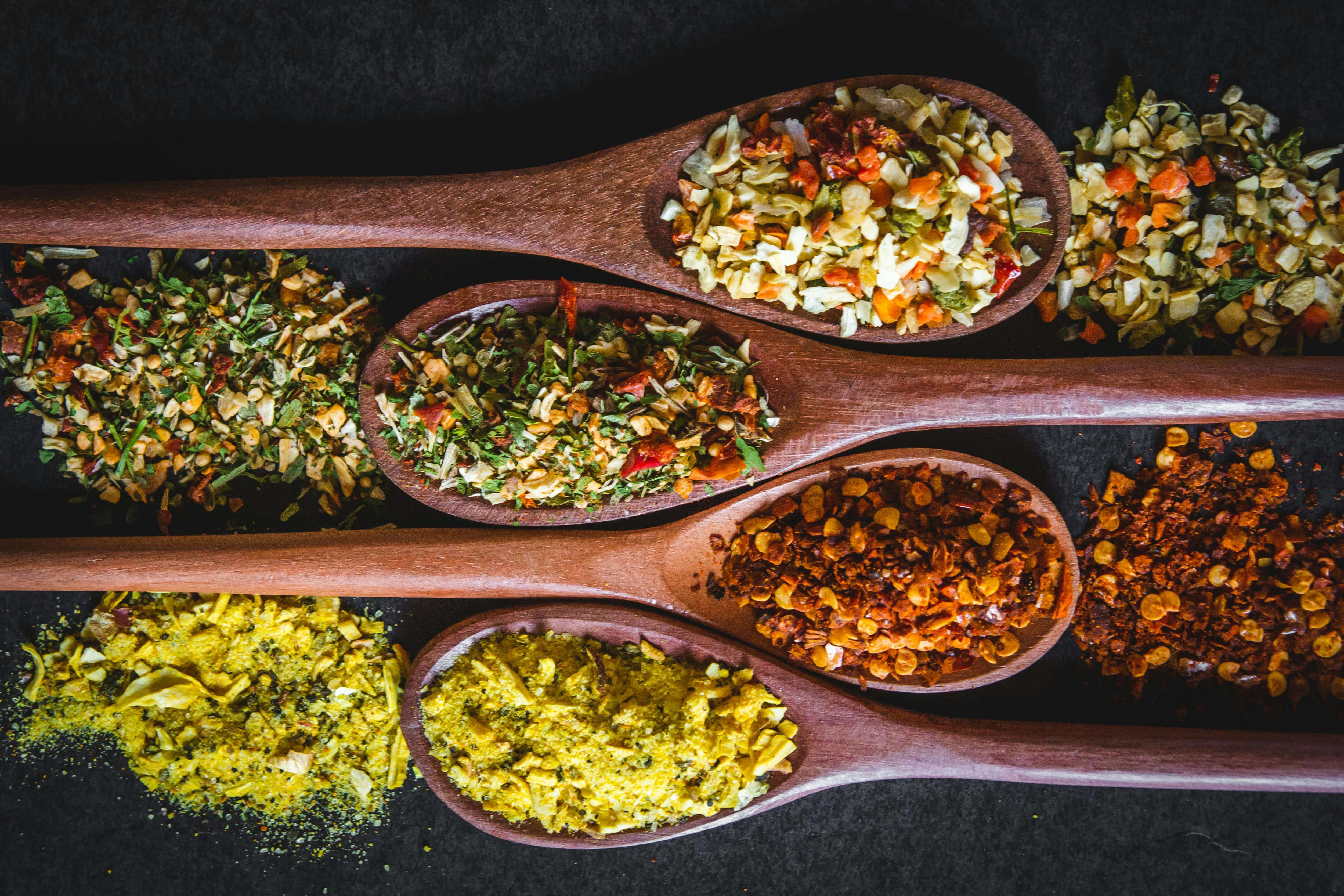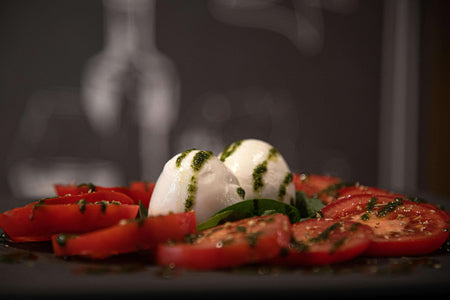Cemil, company.com

Exploring Authentic Turkish Spices: Flavors That Inspire
Turkey has a rich history and vibrant culture. It's famous for its exquisite cuisine. Turkish chefs center their culinary artistry on a variety of aromatic spices. The spices bring depth and flavor to every dish. Join us on a journey through the world of authentic Turkish spices, exploring their origins, uses, and why they're a must-have in any kitchen.
The Rich Tapestry of Turkish Spices
Turkish spices are more than just seasonings. They reflect the country's diverse cultures and rich geography. From the bustling spice markets of Istanbul to the fertile lands of Anatolia, each spice tells a story of tradition and craftsmanship passed down through generations.
Explore essential Turkish spices to enrich your cooking experience
- Sumac: Known for its tangy, lemony flavor, sumac is often used to add a bright, citrusy note to dishes like kebabs, salads, and rice pilafs.
- Aleppo Pepper is mildly spicy with fruity undertones. It's a staple in Turkish cuisine. It enhances everything from grilled meats to stews and dips.
- Turkish Red Pepper Flakes (Pul Biber): These flakes offer a moderate heat level with a hint of sweetness, perfect for spicing up soups, marinades, and even pizzas.
- Cumin: Ground cumin seeds bring a warm, earthy flavor to Turkish dishes, particularly meat-based recipes like köfte (meatballs) and kebabs.
- Mahlab: Made from ground cherry pits, mahlab lends a distinctive floral and slightly bitter almond flavor to sweet breads, pastries, and desserts.
Why Choose Authentic Turkish Spices?
- Quality and Freshness: Turkish spices are prized for their superior quality and freshness, sourced directly from local producers who adhere to traditional methods of cultivation and harvesting.
- Flavor Complexity: Each spice offers a nuanced flavor profile that adds depth and complexity to dishes, elevating them from ordinary to extraordinary.
- Culinary Versatility: Whether you're cooking meat, vegetables, grains, or desserts, Turkish spices provide endless possibilities for creative culinary exploration.
Where to Find Authentic Turkish Spices
To experience the true essence of Turkish spices, consider visiting local Turkish grocery stores or reputable online suppliers like Orontes Grocery that specialize in Middle Eastern and Mediterranean ingredients. Look for spices that are labeled as authentic and sourced from trusted regions known for their spice production. Bringing Turkey to Your Table
Integrating Turkish spices into your cooking not only enhances the flavors of your dishes but also allows you to embark on a sensory journey through Turkey's culinary landscape. Whether you're a seasoned chef or an adventurous home cook, experimenting with Turkish spices promises to enrich your gastronomic adventures.

Embrace the Essence of Turkish Cuisine
In conclusion, authentic Turkish spices are more than mere ingredients; they embody centuries of culinary heritage and cultural diversity. By incorporating these spices into your kitchen repertoire, you're not just cooking – you're immersing yourself in a journey of flavors that celebrate the essence of Turkey.
Elevate your cooking today with authentic Turkish spices and savor the vibrant tastes that have captivated food enthusiasts worldwide. Let the aromas of Turkey inspire your next culinary masterpiece!
Related articles
Top 10 Tulum Cheese Dishes: Quick and Easy Cooking Guide
Discover 10 delicious recipes featuring Tulum cheese, including grilled vegetable salad, stuffed peppers, tacos, frittata, roasted beet salad, flatbread, stuffed mushrooms, pasta, omelet, and pizza. Each dish showcases the rich, tangy flavor of Tulum cheese, adding a unique twist to your meals. Elevate your cooking with these simple yet flavorful recipes, and for the finest selection of Tulum cheese, visit Orontes Grocery today!
The Irresistible Turkish Bagel Recipe
Simit, an iconic Turkish street food, holds a special place in the hearts of food enthusiasts. These circular bread rings, coated in sesame seeds and baked to perfection, are more than just a snack; they are a culinary delight reflecting the rich flavors of Turkish cuisine. Let's dive into the world of Simit and discover how to make this irresistible Turkish bagel at home. Ingredients You'll Need: 4 cups all-purpose flour 1 tablespoon instant yeast 1 teaspoon salt 1 tablespoon sugar 1 1/2 cups lukewarm water 1/4 cup olive oil 1 egg white (for egg wash) Sesame seeds (for coating) Instructions: Prepare the Dough: In a large mixing bowl, combine the lukewarm water, sugar, and yeast. Let it sit for 5-10 minutes until frothy. Add the olive oil, salt, and half of the flour. Mix well. Knead the Dough: Gradually add the remaining flour and knead the dough on a floured surface for about 8-10 minutes until it's smooth and elastic. Place the dough in a greased bowl, cover it with a kitchen towel, and let it rise in a warm place for about 1 hour or until doubled in size. Shape the Simit: After the dough has risen, punch it down and divide it into 12 equal portions. Roll each portion into a long rope, about 18 inches long, and form it into a circle, overlapping the ends slightly. Press the ends together to seal. Prepare the Coating: In a shallow bowl, beat the egg white. In another bowl, place the sesame seeds. Coat the Simit: Dip each shaped bagel into the egg white, making sure to coat it evenly. Then dip it into the sesame seeds, covering the entire surface with seeds. Second Rise: Place the coated bagels on a baking sheet lined with parchment paper. Cover them with a kitchen towel and let them rise for another 30 minutes. Preheat and Bake: Preheat your oven to 400°F (200°C). Bake the risen bagels for 20-25 minutes or until golden brown and crispy. Enjoy Your Homemade Simit: Once baked, let the Simit cool on a wire rack before serving. These Turkish bagels are best enjoyed fresh and can be served with cheese, olives, jam, or simply on their own as a delightful snack. Tips for Perfect Simit Flour Matters: Using high-quality flour will make a significant difference in the texture of your Simit. Bread flour can also be used for a chewier texture. Proper Kneading: Ensure you knead the dough thoroughly to develop the gluten, which gives Simit its characteristic chewiness. Uniform Size: To ensure even baking, try to keep each Simit the same size and thickness. Crispy Crust: If you prefer a crispier crust, increase the baking time slightly but keep an eye on them to prevent burning. Storing Simit: If you have leftovers, store them in an airtight container to keep them fresh. You can also freeze them and reheat in the oven when needed. Benefits of Turkish Bagel (Simit) Rich in Fiber: Simit, made from flour and sesame seeds, supports digestion and a healthy gut. Source of Protein: Provides essential protein for muscle repair and overall body function. Healthy Fats: Contains olive oil and sesame seeds, offering heart-healthy fats. Cultural Experience: Enjoy Simit as a part of Turkish street food culture, connecting with Istanbul's vibrant culinary tradition. Versatile Snack: Perfect for breakfast or as a snack, enjoyed with cheese, olives, or jam. Homemade Goodness: Making Simit at home ensures freshness and quality ingredients, adding warmth to your table. Experience the Taste of Turkey: Making Simit at home is not just about baking bread; it's about experiencing the flavors and culture of Turkey in every bite. Whether you enjoy them for breakfast, as a snack, or with tea or coffee, Simit brings a taste of the bustling streets of Istanbul right to your kitchen. Share these delicious treats with family and friends and savor the joy of homemade Turkish bagels. Afiyet olsun! (Enjoy your meal!)








